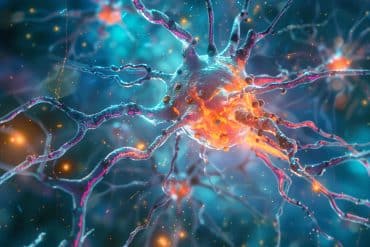Summary: A new study delves into the intricate psyche of conspiracy theorists, attributing their beliefs to a mixture of personality traits and motivations.
The study suggests conspiracy theorists are not necessarily ‘mentally unwell’, but often resort to conspiracy theories to fulfill unmet needs and rationalize distress. Analyzing data from 170 studies with over 158,000 participants, it identifies a need to understand and feel secure in their environment, and a sense of superiority over others as key drivers.
In addition, personality traits such as paranoia, insecurity, impulsivity, and egocentrism were found to be common among conspiracy theorists.
Key Facts:
- The study analyses data from 170 studies with over 158,000 participants, primarily from the United States, the United Kingdom and Poland.
- It reveals that conspiracy theorists are often driven by a need to understand their environment, a desire for superiority, and certain personality traits such as paranoia and egocentrism.
- Despite popular belief, a need for closure or control were not the strongest motivators for conspiracy theorists. Social identity motives and a desire for uniqueness were stronger factors.
Source: APA
People can be prone to believe in conspiracy theories due to a combination of personality traits and motivations, including relying strongly on their intuition, feeling a sense of antagonism and superiority toward others, and perceived threats in their environment.
The results of the study paint a nuanced picture of what drives conspiracy theorists, according to lead author Shauna Bowes, a doctoral student in clinical psychology at Emory University.
“Conspiracy theorists are not all likely to be simple-minded, mentally unwell folks – a portrait which is routinely painted in popular culture,” said Bowes.
“Instead, many turn to conspiracy theories to fulfill deprived motivational needs and make sense of distress and impairment.”
The research was published online in the journal Psychological Bulletin.
Previous research on what drives conspiracy theorists had mostly looked separately at personality and motivation, according to Bowes.
The current study aimed to examine these factors together to arrive at a more unified account of why people believe in conspiracy theories.
To do so, the researchers analyzed data from 170 studies involving over 158,000 participants, mainly from the United States, the United Kingdom and Poland.
They focused on studies that measured participants’ motivations or personality traits associated with conspiratorial thinking.
The researchers found that overall, people were motivated to believe in conspiracy theories by a need to understand and feel safe in their environment and a need to feel like the community they identify with is superior to others.
Even though many conspiracy theories seem to provide clarity or a supposed secret truth about confusing events, a need for closure or a sense of control were not the strongest motivators to endorse conspiracy theories.
Instead, the researchers found some evidence that people were more likely to believe specific conspiracy theories when they were motivated by social relationships.
For instance, participants who perceived social threats were more likely to believe in events-based conspiracy theories, such as the theory that the U.S. government planned the Sept. 11 terrorist attacks, rather than an abstract theory that, in general, governments plan to harm their citizens to retain power.
“These results largely map onto a recent theoretical framework advancing that social identity motives may give rise to being drawn to the content of a conspiracy theory, whereas people who are motivated by a desire to feel unique are more likely to believe in general conspiracy theories about how the world works,” according to Bowes.
The researchers also found that people with certain personality traits, such as a sense of antagonism toward others and high levels of paranoia, were more prone to believe conspiracy theories.
Those who strongly believed in conspiracy theories were also more likely to be insecure, paranoid, emotionally volatile, impulsive, suspicious, withdrawn, manipulative, egocentric and eccentric.
The Big Five personality traits (extraversion, agreeableness, openness, conscientiousness and neuroticism) had a much weaker relationship with conspiratorial thinking, though the researchers said that does not mean that general personality traits are irrelevant to a tendency to believe in conspiracy theories.
Bowes said that future research should be conducted with an awareness that conspiratorial thinking is complicated, and that there are important and diverse variables that should be explored in the relations among conspiratorial thinking, motivation and personality to understand the overall psychology behind conspiratorial ideas.
About this psychology and mental health research news
Author: Katherine Novak
Source: APA
Contact: Katherine Novak – APA
Image: The image is credited to Neuroscience News
Original Research: Open access.
“The Conspiratorial Mind: A Meta-Analytic Review of Motivational and Personological Correlates” by Shauna Bowes et al. Psychological Bulletin
Abstract
The Conspiratorial Mind: A Meta-Analytic Review of Motivational and Personological Correlates
A tidal wave of research has tried to uncover the motivational and personological correlates of conspiratorial ideation, often studying these two classes of correlates in parallel.
Here, we synthesize this vast and piecemeal literature through a multilevel meta-analytic review that spanned 170 studies, 257 samples, 52 variables, 1,429 effect sizes, and 158,473 participants.
Overall, we found that the strongest correlates of conspiratorial ideation pertained to (a) perceiving danger and threat, (b) relying on intuition and having odd beliefs and experiences, and (c) being antagonistic and acting superior.
Considerable heterogeneity was found within these relations––especially when individual variables were lumped together under a single domain––and we identified potential boundary conditions in these relations (e.g., type of conspiracy).
Given that the psychological correlates of conspiratorial ideation have often been classified as belonging to one of two broad domains—motivation or personality—we aim to understand the implications of such heterogeneity for frameworks of conspiratorial ideation.
We conclude with directions for future research that can lead to a unified account of conspiratorial ideation.








